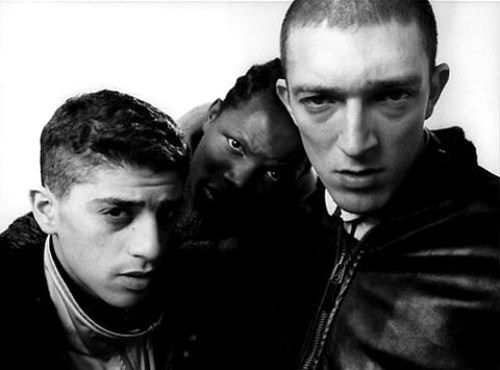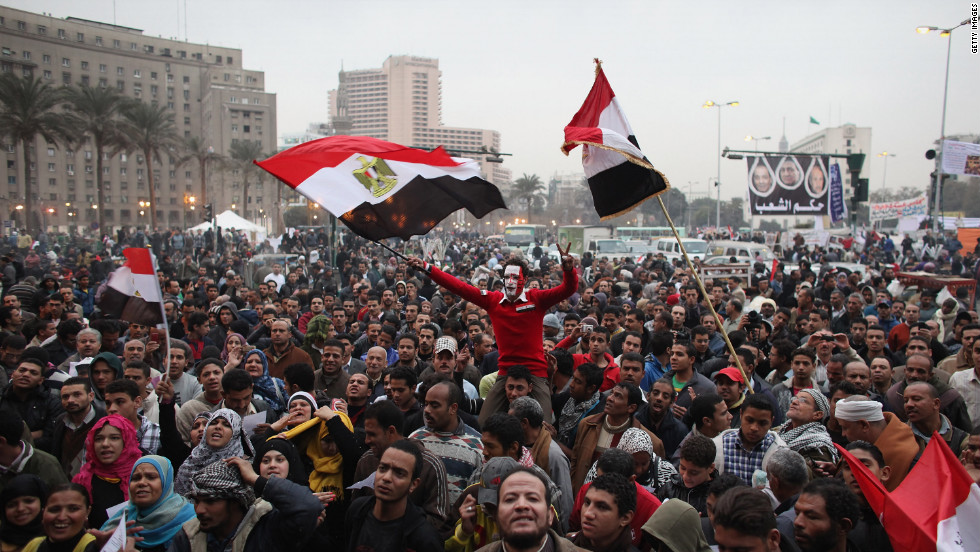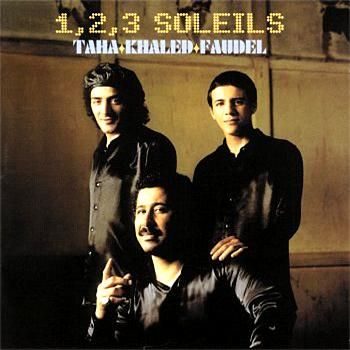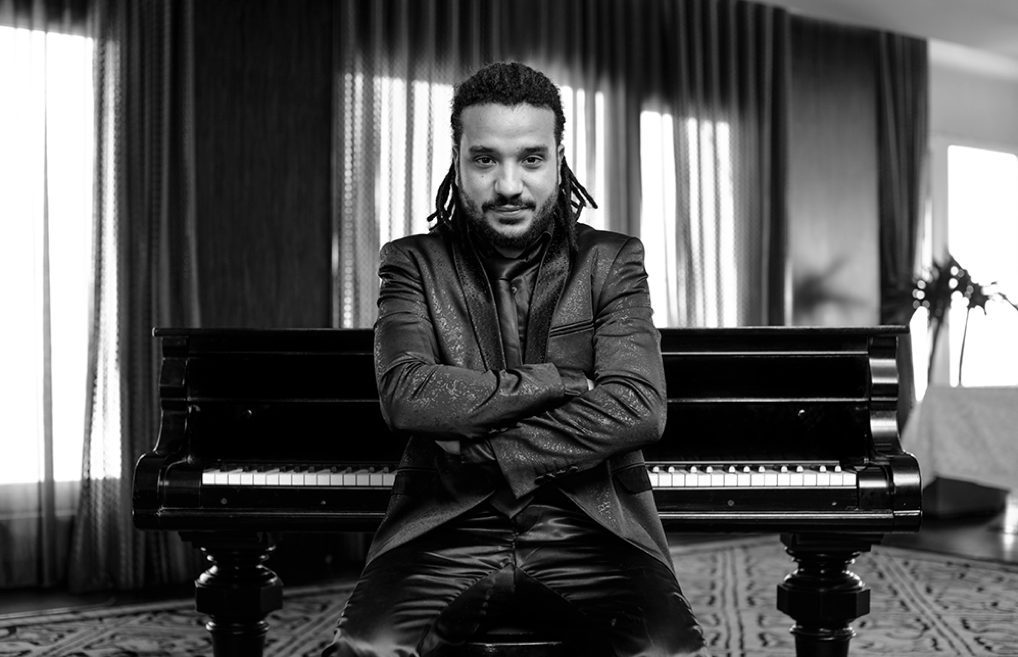(But who am I to give you advice?)
“Music is the only reason. It’ll move you forward and open up doors that everyone says are shut. It'll give you the whole fucking world for free if you just love it and hold back nothing.” DJ Grandmaster Flash as quoted in The Get Down Netflix Series.
I grew up in the 1990’s in the South of France, in a wealthy white family. I had a big house in a quiet compound, went to good schools, where my friends were called Camille, Guillaume, or Gaëtan. Everything looked just as fine as it could in this Desperate Housewives-like bubble.
 One year, for my birthday, my parents offered me what has stayed until recently – couple of years ago, a power outage just sent it back to the 20th century where it belonged - one of my most precious possessions: a portable hi-fi system. It was very small and simple, but I could tune in the radio, listen to CDs, and even read and record cassettes! A whole new world was opening its doors to me, an escape gate that made me discover things I would probably not have had access to otherwise, and that contributed to radical changes in my life – but that was years later.
One year, for my birthday, my parents offered me what has stayed until recently – couple of years ago, a power outage just sent it back to the 20th century where it belonged - one of my most precious possessions: a portable hi-fi system. It was very small and simple, but I could tune in the radio, listen to CDs, and even read and record cassettes! A whole new world was opening its doors to me, an escape gate that made me discover things I would probably not have had access to otherwise, and that contributed to radical changes in my life – but that was years later.
To me, who had almost no popular culture and was not allowed to watch “stupid” or “violent” things on TV (until now, I have never seen Jaws…), this small radio device was a window opened to the world. I had specially set up a comfy corner in my room where I spent hours listening to music and radio programs. For once, I could feel like a normal kid from my generation, connected to thousands of other youth who had probably a different life than mine, but to whom I could relate. It’s through the radio that I followed the first French Reality TV show, as I was not allowed to watch it on TV…
Music is a social marker
Back then, the very beginning of my musical journey, I wasn’t aware that music is a social marker, and what you listen defines who you are and where you belong.
So I was switching between the two main radio stations for teenagers of the time: Fun Radio, with its “groove and dance” soundtrack (i.e. the commercial hits of the time), and Skyrock, that just decided to change its editorial policy to become the first mainstream rap channel in France. I was equally enjoying the frenzy melodies of Gala, Eiffel 65, the Spice Girls and the entire boys bands phenomenon, and the flow and lyrics of IAM, Synik, Menelik and the emerging French rap scene. I also embraced one of the latest trends, a musical movement that was not even aired on national radio but gathered enthusiastic crowds of thousands of people for the first time in France: Raï music. I listened for hours and hours to Faudel, Cheb Mami, Khaled and Rachid Taha’s songs, some of them also featuring some rappers in what was a first mix between hip-hop music and Arab influences.
It seemed perfectly understandable for everyone around me that I would listen to pop or dance songs (I still remember that one Christmas, my parents and grandparents asked me to make them hear the latest Alliage’s album that I just got), the reactions towards raï and rap were quite different. Raï was seen as exotic and ‘ethnic’, a strange thing to listen to - but after all, I was quite a strange boy with strange centers of interest. At 14, I was trying to learn Arabic by myself, having only a manual and Faudel’s songs to practice…
But rap! This degenerate music coming out from the ghettos, talking about violence, prison, and drugs? The thing that the gangsters and punks were listening to? Using slang and bad vocabulary? Nobody understood, nobody even talked to me about it, and nobody never gave me a rap album as a Christmas or birthday gift (the only rap album that I had back then was a Menelik’s one that I had to steal from my mother’s company’s library). That my family wouldn’t understand my interest for rap and raï is not really surprising, but the thing is even around me, my white, middle-upper class, friends had exactly the same prejudices and attitude towards that music that was seen as “the sound of the ghetto”. So when I entered high-school in the beginning of the 2000’s, I soon stopped listening to Skyrock to turn towards Europe 2 (soon to become Virgin Radio) and its pop-rock playlist, because this is what the white middle-class teenagers were listening to – the ones who started to define themselves as “alternative”, or “anti-globalization”. I’ve always stayed faithful to Fun Radio though.
But indeed, in the effervescent, 1990’s French society, what was called the “2nd generation immigrants” – the main inhabitants of the French ghettos (or banlieues) - started taking a prominent role on the national scene, and hip-hop was a huge part of this movement.
 Between the “Beur’s March” in the 1980’s and the “War on Terror” in the 2000’s, the 90’s decade in France was a period of cultural affirmation for the Arab and Black people (“les populations issues de l’immigration”). The ghettos were on fire, with most of France’s big cities witnessing riots during the decade. Films like La Haine or Ma 6T Va Craquer, but also rappers such as La Rumeur or Assassin, were emphasizing on the racism and misery that this category of population was suffering from. On a more festive level, in 1998, the Football World Cup or the ‘1, 2, 3 Soleil’ concert (the biggest-ever Raï concert in France) were signs that a more mixed - “Black Banc Beur” - generation was emerging. If the Raï trend rapidly faded away, French hip-hop gained at that time wild commercial success, and the first ‘Urban Peace’ concert in 2002, gathering the most prominent and promising rap artists in the symbolic arena of the Stade de France, was a public consecration for this sub-culture that definitely came out of the underground. It has since then been acknowledged that that specific period was the “golden era” of French hip-hop, when figures who became legends (IAM, NTM, MC Solaar) were paving the way for a whole new generation of rappers who would quickly become national stars. Today, hip-hop is less and less seen as an “ethnic” or “ghetto” music by most French people, with white, middle and upper-class people listening to - or even making - it. Now, I can talk about the latest Wati B record with my youngest brother, a young white teenager in a good private school, without anybody finding it weird or inappropriate…
Between the “Beur’s March” in the 1980’s and the “War on Terror” in the 2000’s, the 90’s decade in France was a period of cultural affirmation for the Arab and Black people (“les populations issues de l’immigration”). The ghettos were on fire, with most of France’s big cities witnessing riots during the decade. Films like La Haine or Ma 6T Va Craquer, but also rappers such as La Rumeur or Assassin, were emphasizing on the racism and misery that this category of population was suffering from. On a more festive level, in 1998, the Football World Cup or the ‘1, 2, 3 Soleil’ concert (the biggest-ever Raï concert in France) were signs that a more mixed - “Black Banc Beur” - generation was emerging. If the Raï trend rapidly faded away, French hip-hop gained at that time wild commercial success, and the first ‘Urban Peace’ concert in 2002, gathering the most prominent and promising rap artists in the symbolic arena of the Stade de France, was a public consecration for this sub-culture that definitely came out of the underground. It has since then been acknowledged that that specific period was the “golden era” of French hip-hop, when figures who became legends (IAM, NTM, MC Solaar) were paving the way for a whole new generation of rappers who would quickly become national stars. Today, hip-hop is less and less seen as an “ethnic” or “ghetto” music by most French people, with white, middle and upper-class people listening to - or even making - it. Now, I can talk about the latest Wati B record with my youngest brother, a young white teenager in a good private school, without anybody finding it weird or inappropriate…
20 years have passed…
I know live in a different country, in a different environment, culture, and society. Thankfully, in these 20 years, I managed to break out of my bubble, travel, learn new languages, meet amazing people, have incredible experiences. I have converted myself in some sort of human portable transistor, trying to open windows, introduce new cultures, and break geographic and social borders. Living for 10 years between Egypt and France, I organize cultural events and write about these 2 societies, trying to make them better understand each other. Wich means taking interest in untold stories, trying to understand the sociological and political big frames as well as the smallest individual trajectories.
 Indeed, in the past decade Egypt has witnessed tremendous changes, what one can call a Revolution – if not politically, at least socially and culturally. The Egyptian society has been truly shaken since the beginning of the 2000s, and among the many factors that led to the Egyptian uprising in 2011, we mustn’t underestimate the role of the middle class. Feeling left aside by the wealthy political and economic elites, they started to speak out for themselves, but also for the wide majority of the population who didn’t have access to the media nor to political representation. At that time, the myth of a society unified against the dictatorship, rich and poor people side by side, Christians and Muslims, men and women, was very strong, and was expressed in mottos like “Bread, Freedom and Social Justice” that spoke to everyone according to their social situation… But few years later, the counter-revolution is en marche, and the economic situation is worsening. Times are no more to the union against dictatorship, but individual survival. As the ambitions of the middle class people to gain political powers have failed, they now develop cultural strategies to differentiate themselves from the lower class that they fear to be dragged down back. The “alternative” scene has never been so vibrant, with “independent” art spreading in all the middle-class neighborhoods: “indie” music groups, “indie” movies screenings, “alternative” coffee-shops, night-clubs or lounge places are the new trend. Enjoying “popular” forms of entertainment has become so below-their-standards for these educated and open-minded people…
Indeed, in the past decade Egypt has witnessed tremendous changes, what one can call a Revolution – if not politically, at least socially and culturally. The Egyptian society has been truly shaken since the beginning of the 2000s, and among the many factors that led to the Egyptian uprising in 2011, we mustn’t underestimate the role of the middle class. Feeling left aside by the wealthy political and economic elites, they started to speak out for themselves, but also for the wide majority of the population who didn’t have access to the media nor to political representation. At that time, the myth of a society unified against the dictatorship, rich and poor people side by side, Christians and Muslims, men and women, was very strong, and was expressed in mottos like “Bread, Freedom and Social Justice” that spoke to everyone according to their social situation… But few years later, the counter-revolution is en marche, and the economic situation is worsening. Times are no more to the union against dictatorship, but individual survival. As the ambitions of the middle class people to gain political powers have failed, they now develop cultural strategies to differentiate themselves from the lower class that they fear to be dragged down back. The “alternative” scene has never been so vibrant, with “independent” art spreading in all the middle-class neighborhoods: “indie” music groups, “indie” movies screenings, “alternative” coffee-shops, night-clubs or lounge places are the new trend. Enjoying “popular” forms of entertainment has become so below-their-standards for these educated and open-minded people…
Music from the slums
And it’s true that the cultural scene - specifically the music scene - in Egypt in the past 10 years or so have witnessed incredible changes, with many underground movements making their way up to the surface and reaching wider audience, following different paths.
For instance, the “fusion”, “oriental jazz”, “neo-folk” trend, which was really confidential few years ago, has become the new chic in the Egyptian capital, with bands now performing in big concert halls, festivals, and even on TV programs and commercials. But they still benefit from that “independent” label linked to their mostly middle-class position and their pro-revolution discourses, and are very popular among their pairs.
The hip-hop scene had a quite different trajectory: from being mostly underground before the Revolution, the few years of political and social uprising put it under the spotlight, with enthusiastic crowds discovering these politically-oriented lyrics and an alternative way of life. But the counter-revolution sent it back to the underground, even if its sociological composition has evolved. From a mostly westernized middle-class background in the 2000s, it is now more a lower-class marginal phenomenon, following a reverse path compared to other countries.
But the most interesting musical phenomenon in Egypt in the past 10 years – and the pretext to this article, remember? – is what is called in Western countries “Electro-Chaabi” and in Egypt “Mahraganat” (or “festivals’ music”). Emerged in the 2000s in the poorest suburbs surrounding the Egyptian capital, this new way of making music, mixing traditional samples with Western rhythms (hip-hop, reggae, techno…) and using the new technologies available (auto-tune, turntables and electronic keyboards, youtube) has become in the last years a huge popular and social phenomenon. Everybody is listening to it, at home, in the street, in the transportation, everywhere, all day long. The “first generation” of these artists (Oka w Ortega, Sadat w Fifty, Islam Chipsy, DJ Figo) are now national icons, with some of them touring in the biggest music festivals in Europe, while others are now superstars appearing on TV shows, commercial movies and tabloids. Of course, this huge popular success couldn’t go without controversy… Many in the middle and upper class didn’t warmly welcome this new sub-culture threatening their monopole. Come on, music coming out from the slums, made by people who have no education, don’t speak properly, dress up in a weird way, and talk about their miserable life (you know, violence, drugs, sex, police abuse, political corruption and religious taboos) using slang and bad vocabulary! Can this even be called music or art? It’s just garbage, as the people who make and listen to it…

Sounds familiar? Yeah, exactly like hip-hop in France in the 90’s, and earlier in the USA, or like reggaeton in 'Latin' America in the 2000’s – or actually like almost all new musical genres that popped up since the beginning of times, jazz, blues, rock, and so on – the ruling cultural elite just don't accept that lower classes can actually show creativity and have something to express. But just because it is not the way they like things to be expressed or art to be made, one cannot deny the talent and success of these artists. Or is it that the millions of people in this country embracing this new phenomenon are fundamentally stupid and cannot see the difference between what is called “art” and what is considered “shit”? Or are they not entitled to have an artistic opinion?
Actually, this is a far bigger issue than just liking electro-chaabi or hip-hop. It is about cultural policies, and the role of the dominant middle-class in it. If you consider “art” only certain forms of expression (whether it is music, film, dance, theater…), then why don’t you give access to it to the largest, "uneducated" audience? Is art only for the elite? In this case you cannot really blame people for creating and spreading their own forms of art, using their own tools and references – or the ones that you let them have. Who is to blame if most of the people in the slums have never seen a French new-wave movie nor heard a jazz concert? But guess what? Both jazz music and French new-wave cinema were the results of young people rebelling against the dominant artistic conventions of their times, and being widely criticized by the cultural elite for doing that…
So here we are. Once again, a new version of the Quarrel of the Ancients and the Moderns, dealing this time with music and social background rather than literature and sources of inspiration. In this never-ending fight, my friend, you have a choice: stay in your comfort zone, keep listening to what your pairs agree to define as “art”; or forget your prejudices, go out of the bubble, and open your mind to different ways of making music, and new definitions of “art”. And, who knows? Maybe, if you take the second option, your life could go through some interesting changes… But who am I to give you advice after all?
“I’ve always wanted my voice to be heard by those who I was not supposed to reach. Thanks to the Mahraganat music, now they hear my voice.” Islam Chipsy, quoted in the documentary Electro-Chaabi by Hind Meddeb.
For more details on Electro-Chaabi music, bands and history, you can listen to this episode (in French) of NDC RadiO.
And for more information on the links between electro-chaabi and hip-hop, please read (again) this and that article (also in French).

/image%2F0727868%2F20150319%2Fob_425e8d_404039-10151154751147160-2029738361-n.jpg)





/image%2F0727868%2F20160706%2Fob_b7c9a3_12417507-10154171367187160-89100610542.jpg)
/image%2F0727868%2F20160614%2Fob_329b1a_labour-day-protest-hamdin-sabahi-11.jpg)
/http%3A%2F%2Fcdn4.spiegel.de%2Fimages%2Fimage-894147-galleryV9-pcit.jpg)
/http%3A%2F%2Fstatic1.972mag.com%2Fwp-content%2Fuploads%2F%2F2011%2F03%2Fborsa_600.jpg)
/image%2F0727868%2F20160822%2Fob_84d3e2_effba940-a89c-48a5-8f7e-49799af764cd.png)
/image%2F0727868%2F20160706%2Fob_b7c9a3_12417507-10154171367187160-89100610542.jpg)
/image%2F0727868%2F20160623%2Fob_8fea2f_combine-images.jpg)
/image%2F0727868%2F20160618%2Fob_9fac9e_maxresdefault.jpg)
Commenter cet article